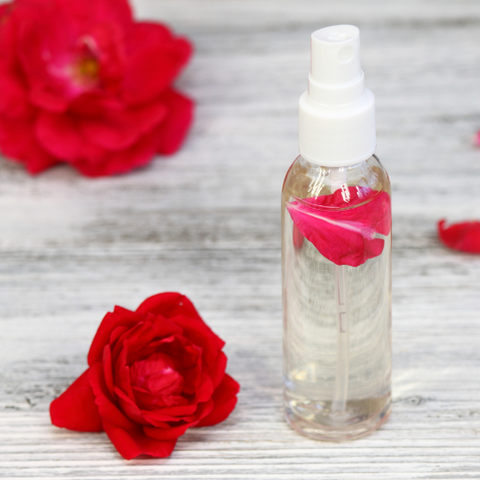Food affects your health, your energy, and... your mood!
If you’ve been feeling stressed, burnt out, or anxious lately, it might be a good idea to take a closer look at your diet. You might have been consuming foods that affect your mood negatively. Similarly, since some foods boost your mood, you can try gradually replacing unhealthy foods with foods that brighten your mood.
Consider also the following - stimulants like caffeine and sugar will boost your mood temporarily. That’s why often, when we don’t feel good, we resort to sugary treats. Yet, such a mood boost is temporary and at the expense of a worse mood later. Think of it as your present self borrowing energy and good mood from your future self.
If you don’t know much about how food affects your mood, this article will help. We are going over the best 5 foods for a better mood, as well as 5 foods you should avoid.
The 5 Worst Foods For Your Mood
1. Sugary Foods
Sugary foods like chocolate, candy bars, donuts, and breakfast cereals, are linked to depression. Scientists found that people who ate sugary foods had higher levels of depressive disorder - likely because sugar increases inflammation in the brain.
Cutting sugar from your diet isn’t so easy because it seems to be everywhere. As a start, replace sugary treats with fruit. In a matter of days, your sugar craving will subside.
2. Margarine and other butter substitutes
For some time, nutrition experts believed that margarine was healthier than butter. But researchers have found that this isn’t true. The issue with butter substitutes is the high level of omega-6 fatty acids.
A distorted ratio of (inflammatory) omega-6 fatty acids to (anti-inflammatory) omega-3 fatty acids can raise the risk for a variety of diseases and depression.
3. Deep-fried foods
Deep-fried foods are high in trans fats. Those trans fats can increase your risk of depression, dull mood, and anxiety.
Most deep-fried foods also contain saturated fats, excess sodium, and refined carbohydrates. These ingredients can cause energy peaks in your body - which can feel great momentarily. But shortly after, your energy plummets and you feel foggy, irritable, and fatigued.
4. Canned foods
The bigger problem with canned food isn’t the food but the can itself. Most cans are coated with an industrial chemical called BPA, or bisphenol-A.
Small amounts of BPA may migrate from food packaging leading to frequent exposure. That’s an issue because, as researchers have discovered, BPA is directly linked to depression and anxiety - especially in preteen boys.
5. Deli meat and processed meat
Deli meat is loaded with preservatives and additives because it has to be conserved for long periods of time. The preservatives can cause bloating, headaches, and mood swings. Opt for organic meat or try roasting meat yourself.
Now that you know which foods to avoid, let’s have a look at the top 5 foods that will help you boost your mood.
The 5 Best Foods For Your Mood
5. Wild-Caught Fatty Fish
Wild-caught fatty fish are a great source of omega-3 fatty acids. Again, it’s important to consume more omega-3 fatty acids than omega-6 fatty acids.
Omega-3 fatty acids have been shown to improve cognitive function and counteract depression. Your body can’t produce omega-3 fatty acids on its own, so it’s essential to get them from your diet.
Some of the best sources of omega-3 fatty acids are wild salmon, mahi-mahi, sardines, and mackerel.
4. Probiotics and Prebiotics
Research has shown that it’s not just your brain that makes you feel happy. It’s also your gut. Scientists estimate that up to 90% of serotonin, the “happiness hormone,” is produced by gut bacteria.
The gut microbiome also produces essential mood-boosting hormones, such as dopamine and GABA. In other words, happy gut = happy you.
Eating both, probiotics and prebiotics, is essential to help your gut thrive. Probiotics introduce more healthy live bacteria to your gut. Prebiotics stimulate their growth, supporting the production of mood-elevating hormones.
Probiotics are found in fermented foods such as sauerkraut, kimchi, tempeh, sourdough bread from fermented flour, kombucha, and yogurt with active cultures.
Prebiotics can be found in onions, chicory, garlic, asparagus, bananas, and artichokes.
3. Berries
Berries can lower the risk of depression and mood disorders. They are packed with antioxidants, which help reduce oxidative stress and reduce inflammation.
Scientists have associated oxidative stress and chronic inflammation with major depressive disorder. Lowering inflammation is key to supporting your mental and emotional health. So, eat a variety of mood-boosting berries - especially of the blue and purple varieties.
Looking for a unique way to incorporate berries into your diet? Try this mood-boosting yogurt recipe!
2. Dark Chocolate
Dark chocolate has several mood-boosting properties. It stimulates the production of endorphins, as well as serotonin, and it contains flavonoids and antioxidants.
Thanks to endorphins, dark chocolate can make you feel calmer and help improve your mood. Flavonoids and antioxidants (just like in berries) help prevent inflammation and oxidative stress - reducing the risk of depression.
1. Bulgarian Rose
For a few reasons, the Bulgarian Rose is at the top of the chart of mood-boosting foods. This super herb is loaded with flavonoids (more so than any other).
Flavonoids are potent antioxidants that fight free radicals and chronic inflammation, thus lowering your risk of depression and mood disorders.
The aroma of the Bulgarian Rose instantaneously improves mood. It has also been proven to ease PMS symptoms and improve sleep quality.
Adding Pure Rose Nectar to your diet as well as using it topically for its soothing aroma will help you reap the benefits of the Bulgarian Rose.
Pure Rose Nectar, specifically formulated for internal use, is a great addition to your water and a perfect way to boost your mood. It gives you both the flavonoids as well as the aroma of the Bulgarian Rose. Pure Rose Nectar supports your body and mind without any sugar or artificial preservatives.
If you prefer something on the go, Rose Yummies are as easy as it gets. You can also complement that with a topical product, Pure Rose Mist, which is the only topical rose product enriched with organic rose oil.
Searching for inspiration? Check out our High Vibe Recipes and discover how to create your own refreshing Rose Boost or energizing Rose Matcha.
Supercharge your mood and get your Pure Rose Rose Nectar today. To health & high vibrations!
References:
Setiawan, E., et al, “Role of Translocator Protein Density, a Marker of Neuroinflammation, in the Brain During Major Depressive Episodes,” JAMA Psychiatry, 2015;72(3): Pages 268-275
Perera F, Nolte ELR, Wang Y, Margolis AE, Calafat AM, Wang S, Garcia W, Hoepner LA, Peterson BS, Rauh V, Herbstman J. Bisphenol A exposure and symptoms of anxiety and depression among inner city children at 10-12 years of age. Environ Res. 2016 Nov;151:195-202. doi: 10.1016/j.envres.2016.07.028. Epub 2016 Aug 3. PMID: 27497082; PMCID: PMC5071142.
Sanchez-Villegas, A., et al., “Dietary Fat Intake and the Risk of Depression: The SUN Project,” PLOS One, January 26, 2011.
Nucci D, Fatigoni C, Amerio A, Odone A, Gianfredi V. Red and Processed Meat Consumption and Risk of Depression: A Systematic Review and Meta-Analysis. Int J Environ Res Public Health. 2020 Sep 14;17(18):6686. doi: 10.3390/ijerph17186686. PMID: 32937855; PMCID: PMC7559491.
Martí Del Moral A, Fortique F. Omega-3 fatty acids and cognitive decline: a systematic review. Nutr Hosp. 2019 Aug 26;36(4):939-949. English. doi: 10.20960/nh.02496. PMID: 31215788.
Liao, Y., Xie, B., Zhang, H. et al. Efficacy of omega-3 PUFAs in depression: A meta-analysis. Transl Psychiatry 9, 190 (2019). https://doi.org/10.1038/s41398-019-0515-5
Lindseth G, Helland B, Caspers J. The effects of dietary tryptophan on affective disorders. Arch Psychiatr Nurs. 2015 Apr;29(2):102-7. doi: 10.1016/j.apnu.2014.11.008. Epub 2014 Dec 9. PMID: 25858202; PMCID: PMC4393508.
Carabotti M, Scirocco A, Maselli MA, Severi C. The gut-brain axis: interactions between enteric microbiota, central and enteric nervous systems. Ann Gastroenterol. 2015 Apr-Jun;28(2):203-209. PMID: 25830558; PMCID: PMC4367209.
Xiaoqin Liu, Ying Yan, Fang Li, Dongfeng Zhang. Fruit and vegetable consumption and the risk of depression: A meta-analysis, Nutrition, Volume 32, Issue 3, 2016, Pages 296-302, ISSN 0899-9007, https://doi.org/10.1016/j.nut.2015.09.009.
Aurelia Magdalena Pisoschi, Aneta Pop. The role of antioxidants in the chemistry of oxidative stress: A review, European Journal of Medicinal Chemistry, Volume 97, 2015, Pages 55-74, ISSN 0223-5234, https://doi.org/10.1016/j.ejmech.2015.04.040.
Tarique Hussain, Bie Tan, Yulong Yin, Francois Blachier, Myrlene C. B. Tossou, Najma Rahu, "Oxidative Stress and Inflammation: What Polyphenols Can Do for Us?", Oxidative Medicine and Cellular Longevity, vol. 2016, Article ID 7432797, 9 pages, 2016. https://doi.org/10.1155/2016/7432797
Slavich, G. M., & Irwin, M. R. (2014). From stress to inflammation and major depressive disorder: A social signal transduction theory of depression. Psychological Bulletin, 140(3), 774–815. https://doi.org/10.1037/a0035302
Naval Heydari, Maliheh Abootalebi, Neda Jamalimoghadam, Maryam Kasraeian, Masoumeh Emamghoreishi, Marzieh Akbarzaded. Evaluation of aromatherapy with essential oils of Rosa damascena for the management of premenstrual syndrome. International Journal of Gynecology and Obstetrics, 10 July 2018, https://doi.org/10.1002/ijgo.12534
Ghazaleh Heydarirad, Armaghan Sadat Keyhanmehr, Bahram Mofid, Hossein Nikfarjad, Seyed Hamdollah Mosavat. Efficacy of aromatherapy with Rosa damascena in the improvement of sleep quality of cancer patients: A randomized controlled clinical trial, Complementary Therapies in Clinical Practice, Volume 35, 2019, Pages 57-61, ISSN 1744-3881, https://doi.org/10.1016/j.ctcp.2019.01.017.





